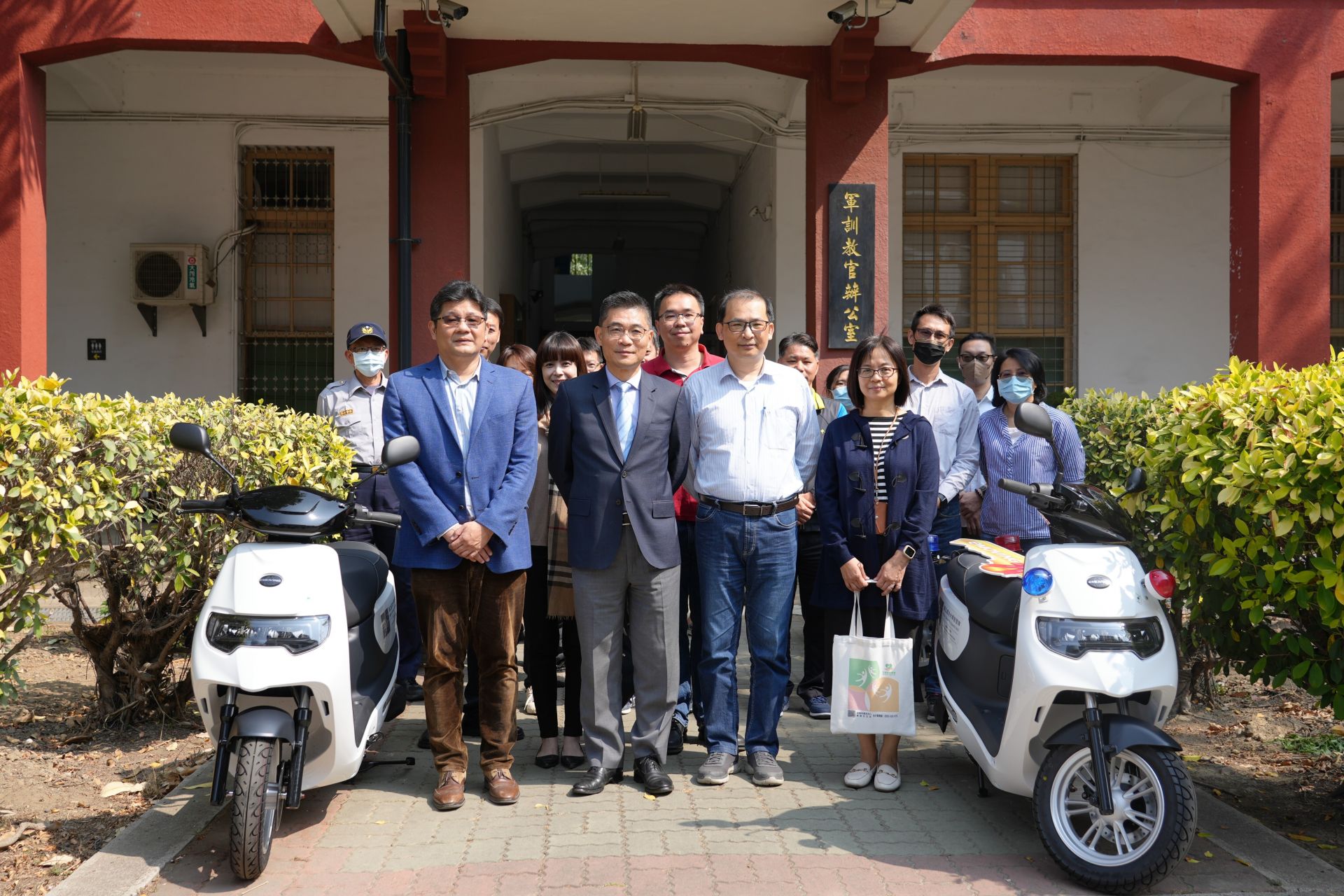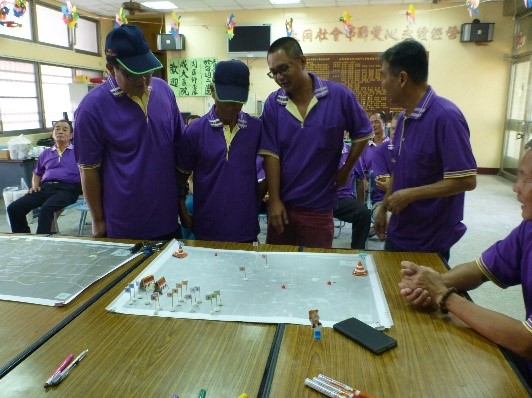SDG13
NCKU's First University-wide Carbon Reduction Management Training for Research and Development Staff Concludes Successfully
National Cheng Kung University (NCKU), adhering to the principles of sustainable governance and actively responding to national policies, has launched its first university-wide carbon reduction management training program for research and development staff. This program is designed for relevant units and their members, focusing on ISO 14064-1:2018 greenhouse gas inventory standards. The training aims to help units understand the critical aspects of greenhouse gas inventory and guide them in formulating strategies to achieve carbon reduction goals.
From November 7 to November 10, a four-day greenhouse gas inventory training course was held. Participants mainly included members from NCKU's Research and Development Office and General Affairs Office. The course content covered the ISO 14064-1:2018 standard, and was conducted by professional instructors from the Industrial Technology Research Institute's College of Industry and SGS, a third-party certification body accredited by the Ministry of Environment. Those who complete the course will receive the "ISO 14064-1:2018 Lead Verifier for Greenhouse Gas Inventory" qualification, certified by the Environmental Protection Administration, enhancing the university's carbon reduction technical skills and practical capabilities. This initiative will also promote industry-academia collaboration to jointly advance carbon reduction action plans.
Dr. Chuan-Pu Liu, Director of NCKU's Research and Development Office, led his team to participate in the opening ceremony on November 7. He highlighted that the Kaohsiung City Government has recently initiated cross-disciplinary cooperation with southern counties, the industry, inspection bodies, and universities, establishing a physical net-zero academy in the Kaohsiung Software Technology Park. This initiative aims to broaden the dissemination of net-zero knowledge and provide certification training, including ISO 14064-1 for greenhouse gas inventory, ISO 14067 for carbon footprint analysis, and ISO 50001 for energy management systems. It also customizes training to meet the needs of local industries. "NCKU is a key partner of the Kaohsiung Net-Zero Academy and bears the responsibility for professional carbon knowledge management and training. We hope participants will embrace the desire for knowledge and truly implement carbon reduction principles, contributing to the NCKU campus and the national community."
Globally, greenhouse gas emissions have become a pressing issue with severe impacts on the Earth's environment. Over 110 countries have pledged to achieve net-zero greenhouse gas emissions by 2050 (or by 2060 for some countries), underscoring the urgency of carbon reduction actions. Organizations will inevitably have to participate in the carbon reduction battle in the future. Failure to conduct greenhouse gas inventories and develop carbon reduction strategies will directly affect their operational competitiveness. Additionally, international trends show that industries are accelerating toward zero-carbon transitions, with green standards becoming crucial considerations for business partnerships. Supply chain demands are also increasing, with companies like Apple requiring suppliers to disclose Scope 1 and 2 greenhouse gas data.
Domestically, policies are also intensifying. For example, the revised "Climate Change Response Act" passed in January 2023 mandates that large carbon-emitting enterprises will have to pay carbon fees starting in 2024. The Financial Supervisory Commission has pre-announced plans to promote a "Sustainable Development Roadmap for Listed Companies," requiring all listed companies to complete greenhouse gas inventories by 2027 and verification by 2029. Taiwan aims to achieve net-zero emissions through four major transitions—energy, industry, lifestyle, and society—supported by two governance foundations—technological research and climate legislation—and twelve key strategies. The government is actively implementing mechanisms for carbon pricing, carbon inventory, carbon management, and natural carbon sinks, with plans to complete these by 2024.
The training program also embraced environmental principles, coordinating with the NCKU Circular Economy Student Association's circular lunchbox initiative. During the four-day course, 128 lunches were ordered, successfully reducing the use of 128 single-use lunchboxes. Participants were also encouraged to bring their own chopsticks and utensils, further reducing event waste and corresponding carbon emissions, fully supporting government policies to reduce single-use utensils and promoting the concept of a circular economy.
From November 7 to November 10, a four-day greenhouse gas inventory training course was held. Participants mainly included members from NCKU's Research and Development Office and General Affairs Office. The course content covered the ISO 14064-1:2018 standard, and was conducted by professional instructors from the Industrial Technology Research Institute's College of Industry and SGS, a third-party certification body accredited by the Ministry of Environment. Those who complete the course will receive the "ISO 14064-1:2018 Lead Verifier for Greenhouse Gas Inventory" qualification, certified by the Environmental Protection Administration, enhancing the university's carbon reduction technical skills and practical capabilities. This initiative will also promote industry-academia collaboration to jointly advance carbon reduction action plans.
Dr. Chuan-Pu Liu, Director of NCKU's Research and Development Office, led his team to participate in the opening ceremony on November 7. He highlighted that the Kaohsiung City Government has recently initiated cross-disciplinary cooperation with southern counties, the industry, inspection bodies, and universities, establishing a physical net-zero academy in the Kaohsiung Software Technology Park. This initiative aims to broaden the dissemination of net-zero knowledge and provide certification training, including ISO 14064-1 for greenhouse gas inventory, ISO 14067 for carbon footprint analysis, and ISO 50001 for energy management systems. It also customizes training to meet the needs of local industries. "NCKU is a key partner of the Kaohsiung Net-Zero Academy and bears the responsibility for professional carbon knowledge management and training. We hope participants will embrace the desire for knowledge and truly implement carbon reduction principles, contributing to the NCKU campus and the national community."
Globally, greenhouse gas emissions have become a pressing issue with severe impacts on the Earth's environment. Over 110 countries have pledged to achieve net-zero greenhouse gas emissions by 2050 (or by 2060 for some countries), underscoring the urgency of carbon reduction actions. Organizations will inevitably have to participate in the carbon reduction battle in the future. Failure to conduct greenhouse gas inventories and develop carbon reduction strategies will directly affect their operational competitiveness. Additionally, international trends show that industries are accelerating toward zero-carbon transitions, with green standards becoming crucial considerations for business partnerships. Supply chain demands are also increasing, with companies like Apple requiring suppliers to disclose Scope 1 and 2 greenhouse gas data.
Domestically, policies are also intensifying. For example, the revised "Climate Change Response Act" passed in January 2023 mandates that large carbon-emitting enterprises will have to pay carbon fees starting in 2024. The Financial Supervisory Commission has pre-announced plans to promote a "Sustainable Development Roadmap for Listed Companies," requiring all listed companies to complete greenhouse gas inventories by 2027 and verification by 2029. Taiwan aims to achieve net-zero emissions through four major transitions—energy, industry, lifestyle, and society—supported by two governance foundations—technological research and climate legislation—and twelve key strategies. The government is actively implementing mechanisms for carbon pricing, carbon inventory, carbon management, and natural carbon sinks, with plans to complete these by 2024.
The training program also embraced environmental principles, coordinating with the NCKU Circular Economy Student Association's circular lunchbox initiative. During the four-day course, 128 lunches were ordered, successfully reducing the use of 128 single-use lunchboxes. Participants were also encouraged to bring their own chopsticks and utensils, further reducing event waste and corresponding carbon emissions, fully supporting government policies to reduce single-use utensils and promoting the concept of a circular economy.
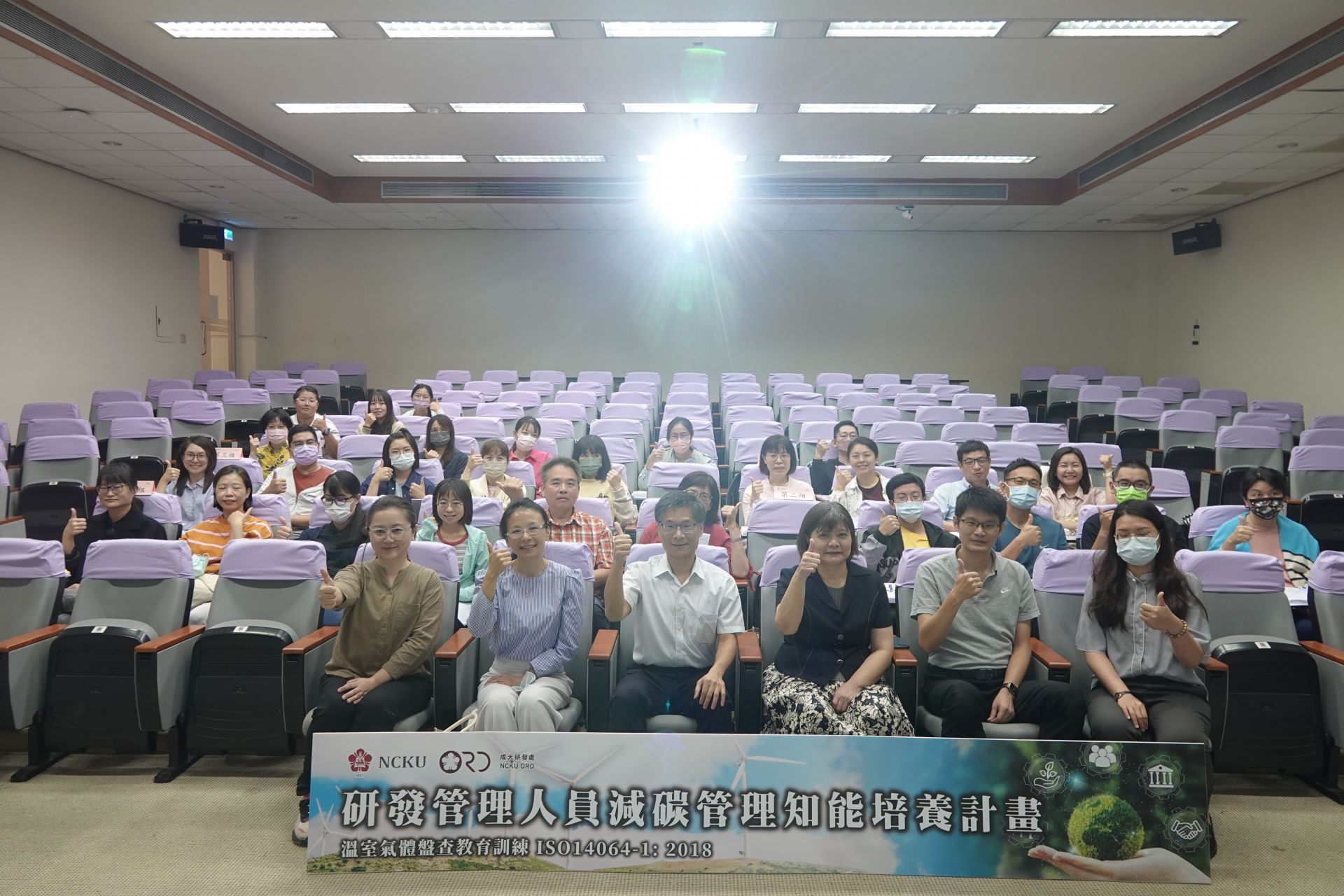
NCKU held its first university-wide carbon reduction management training program for research and development staff from November 7 to 10.
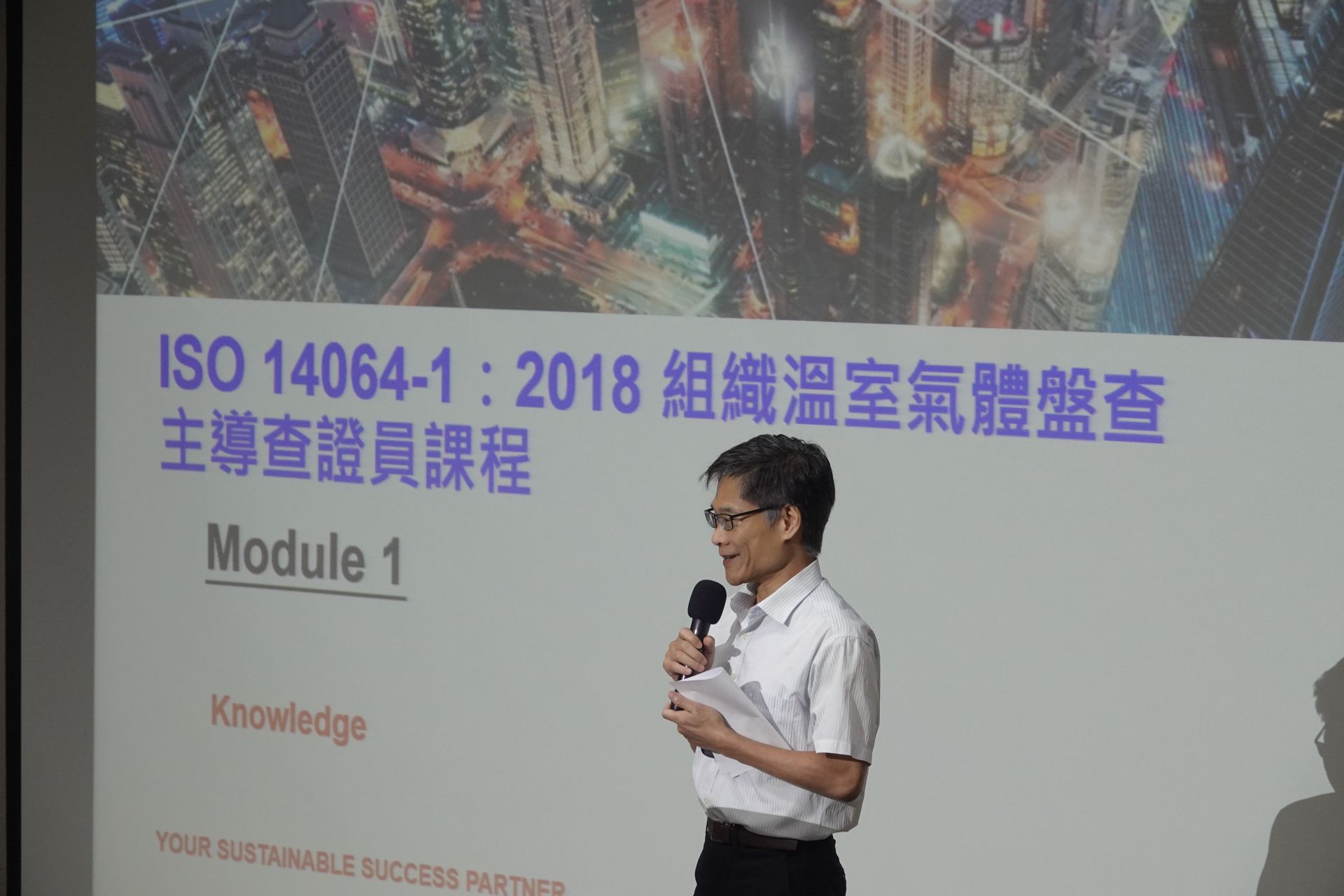
Director of Research and Development, Chuan-Pu Liu, led the R&D team in participating in the opening ceremony.
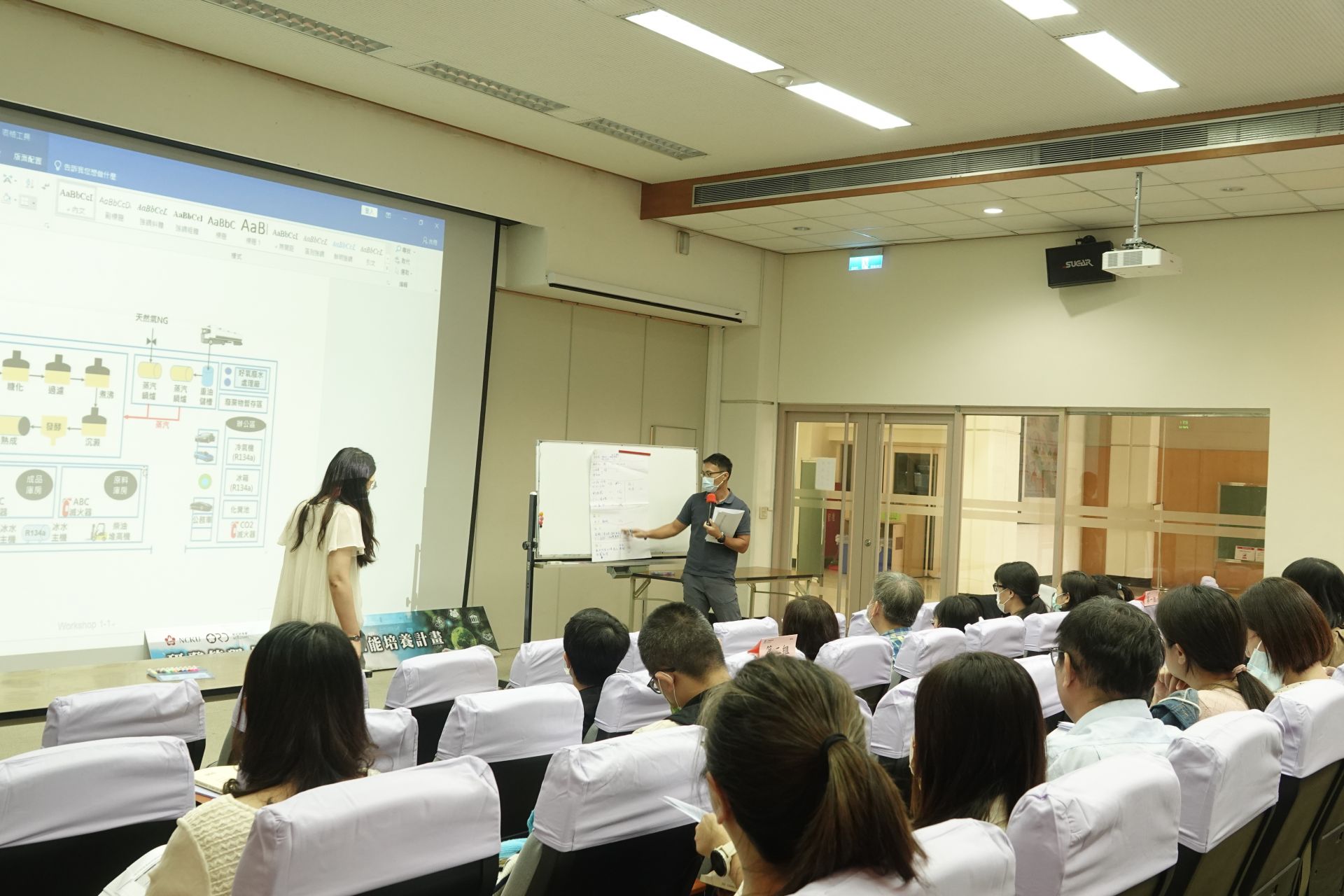
During the four-day event, participants listened and engaged in discussions attentively.






